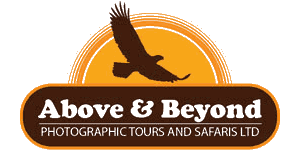Kilimanjaro Umbwe Route 7 days for US$2050/Person Based on 2-3 People Booking
Day 1: Umbwe Route Kilimanjaro Gate (1,800m/5,905ft) to Cave Bivouac Camp (2,850m/9,350ft)
At 8am leave Moshi for Umbwe Gate where you will meet our porters, guides, and cooks who will spend the next six days trekking with you to Uhuru Peak, the roof of Africa. After arriving, wait at the gate while we register your climb, and the porters and guides make final preparations. Your first day’s destination is Cave Bivouac Camp, approximately 6 hours from the gate. The trail is steep and can be slippery in some places. Hike through the moss-covered trees of Kilimanjaro’s cloud forest. The forest will thin later in the hike and heathers, tall grasses and wildflowers will come into view. Porters and cooks will walk ahead to set up the camp in time for your arrival.
Day 2: Cave Bivouac (2,850m/9,350ft) to Barranco Camp (3,950m/12,960ft)
The first section of the trail continues following the ridge. After leaving the forest, continue through open moorlands until reaching Barranco Camp. Barranco is generally regarded as the most scenic campsite on the Umbwe Trail as it’s surrounded by giant senecios and lobelias. As Barranco is in a valley, the sun rises later than at the other camps.
Day 3: Day 4: Barranco Camp (3,900 m/12,800 ft)
Extra Day for Acclimatization. Adding this day will ease your effort and amplify your acclimatization.
Day 4: Barranco Camp (3,950m/12,960ft) to Karanga Valley (4,200m/13,780ft)
Leave Barranco Camp after breakfast for Karanga Valley. The day begins with a 1.5 hour scramble up the Barranco Wall. This is the hardest part of the day and in some places you may have to use your hands to aid your climb. After reaching the top, hike through fairly level terrain before making a short but steep descent into the green Karanga River Valley.
Day 5: Karanga Valley (4,200m/13,780ft) to Barafu Camp (4,600m/15,100ft)
After breakfast, begin the hike to Barafu Camp. On the way to Barafu, view several of Kibo’s glaciers as well as the junction that connects the descent route, Mweka, with the Machame trail. During day four, hike by the Heim, Kersten and Decken Glaciers. Although the trail to Barafu passes through alpine desert with little vegetation, Barafu Camp offers stunning views of Kibo and Mawenzi peaks. Try to sleep after finishing dinner as you will wake before midnight for your summit hike.
Day 6: Barafu Camp (4,600m/15,100ft) to Uhuru Peak (5,895m/19,340ft) to Mweka Camp (3,100m/10,170ft)
Around midnight, begin the final ascent to Uhuru Peak. Hike by the light of your headlamp for the next six hours. The ascent to the crater rim is the most challenging part of the entire trek. The trail is very steep until you reach the crater rim at Stella Point. The hike from Stella Point to Uhuru Peak is a gradual climb and, as far as hikes go, not very difficult. The altitude, however, makes the hike long and tiring. The crater rim hike takes approximately one hour. Upon reaching Uhuru, take photos of your guide and group at the peak before beginning the descent to Mweka Camp. On the way down from Uhuru, enjoy views of the mountain, crater, clouds and glaciers. At Barafu Camp, eat breakfast and take a short break. You still have another three to five hours to go before reaching Mweka Camp.
Day 7: Mweka Camp (3,100m/10,170ft) to Mweka Gate (1,500m/4,920ft)
After breakfast, finish the trek with a hike through the forest to Mweka Gate. The trail may be slippery following rain. Our vehicles will meet you at the lower station of Mweka Gate to take you back to Moshi.
—2 Airport Transfers, from/to JRO Kilimanjaro International Airport
— 2 nights hotel at Keys Hotel in Moshi town on Bed and Breakfast basis, Double or Triple Occupancy
— 3 Delicious meals a day, boiled and filtered drinking water while on the mountain.
— All park entrance, hut and rescue fees
— Warm water for washing to be provided every morning and evening.
— Oxygen Cylinder – only for emergency
— English Speaking Guides (Wilderness First Responder certified), cook and porters
— Staff salaries and fees.
— Transport to/from national park gates.
— First aid kit and pulse oximeter.
— Emergency telephone between the guides and our office in Moshi town.
— 3 litres of bottled drinking water to be provided on the first day of your hike, on the mountain porters will fetch water from the streams to be boiled and filtered for you.
— Sleeping bags
— Gratuities
— Soda/alcohol unless otherwise noted
— Health insurance
— Visa fees
— International airfare
— Laundry
— All Meals and drinks in Moshi town
